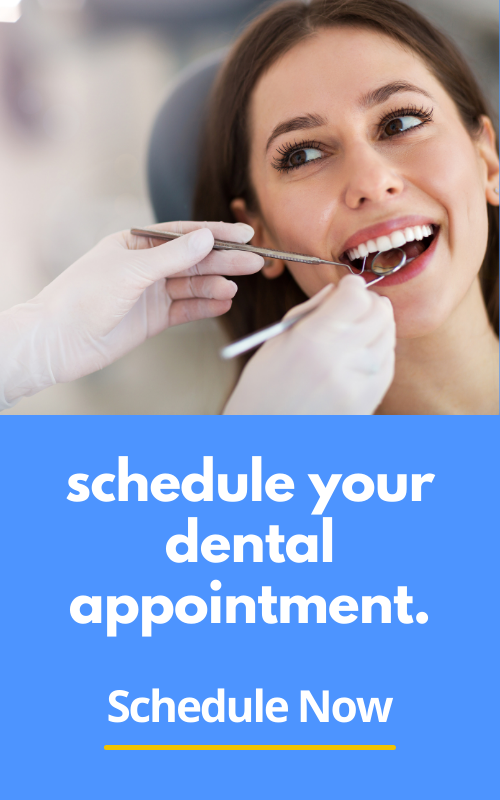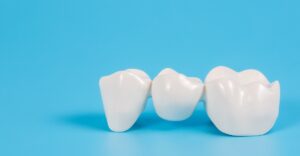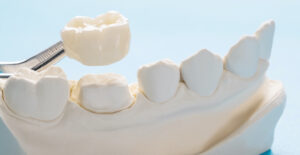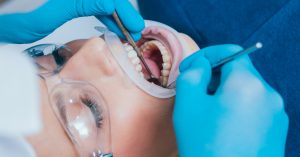Bad breath, also known as halitosis, is an embarrassing condition that can have a negative impact on your social life and self-confidence. While the condition is pesky and can make you feel isolated, you need to remember it is super common. In fact some studies show that 50% of people suffer from halitosis, and there are many ways to improve your breath. First, you need an understanding of the four most common causes that can help you identify the source of your bad breath and take steps to improve your breath.
1. Poor Oral Hygiene
The most common cause of bad breath is poor oral hygiene. When food particles and bacteria are left in the mouth, they can cause bad breath. This is because there are odors left behind from food that is not brushed away. Also, plaque and bacteria that is common in our mouths break down proteins to leave volatile sulfur compounds that cause smelly breath. How can you overcome this?
Brushing and flossing your teeth twice a day and using a tongue scraper can help remove food particles and bacteria from your mouth and reduce bad breath. Surprisingly, there are a high amount of bacteria that exist on the tongue and are responsible for that poor smell. When you don’t floss, you also leave food and plaque debris behind that can contribute to gum disease. Additionally, using an antibacterial mouthwash can help kill bacteria that cause bad breath.
2. Dry Mouth
Dry mouth, also known as xerostomia, is a condition in which the mouth does not produce enough saliva. Saliva helps to keep the mouth clean and free of bacteria, so when there is not enough saliva, bacteria can grow and cause bad breath. Drinking plenty of water and avoiding sugary and acidic foods can help keep your mouth moist and reduce bad breath.
Dry mouth doesn’t only make your mouth dry, but can also cause a raw tongue, a burning sensation in the mouth, cracked lips, and a sore throat. If you identify with any of these symptoms, it is important to reach out to your dentist because dry mouth raises your risk of gum disease, tooth decay, and other oral infections.
There are some great products on the market like Biotene oral rinses that help people with dry mouth. You can also suck on lozenges to help produce more saliva, which will help reduce the chances of tooth decay.
Sometimes dry mouth is something you can’t prevent because of certain medications or medical conditions, but you can always speak with your dentist about tweaking your medicine and prescribing prescription-based gels to give you some relief.
3. Certain Foods
Certain foods, such as garlic and onions, can cause bad breath. This is because the compounds in these foods are absorbed into the bloodstream and then released through the lungs, causing bad breath. To reduce bad breath caused by these foods, try to avoid them or brush your teeth after eating them.
Dentists recommend drinking plenty of water with foods that release a strong odor and brushing soon after to give your mouth a fresh feel.
4. Medical Conditions
In some cases, bad breath can be a sign of a medical condition, such as sinus infections, diabetes, or liver and kidney disease. If your bad breath persists despite practicing good oral hygiene, it is important to see your doctor to rule out any underlying medical conditions.
Some common medical conditions that are responsible for dry mouth can be serious and are often a sign you need to get checked out. Sjogren’s syndrome, Parkinson’s, and rheumatoid arthritis are only a few conditions that cause dry mouth as a side effect. The next time you are at your dental recall visit, remember to update your medical history and symptoms, so your dentist can be aware if there are any changes.
There are side effects of certain medical treatments that may cause damage to the salivary glands like radiation therapy for cancer. In this case, your dentist can recommend toothpastes, moisturizing gels, and an oral rinse to help restore oral moisture in the mouth.
Conclusion
Bad breath can be an extremely embarrassing and uncomfortable condition, especially in social and work situations. But, when you understand the common causes and identify your root issue, you’re more likely to overcome it. The best way to keep your mouth in top shape is always practicing good oral hygiene, drinking plenty of water, avoiding certain foods, and seeing your dentist at regular intervals. All these steps can help reduce bad breath. Contact us today if you have questions about what might be causing your bad breath.












